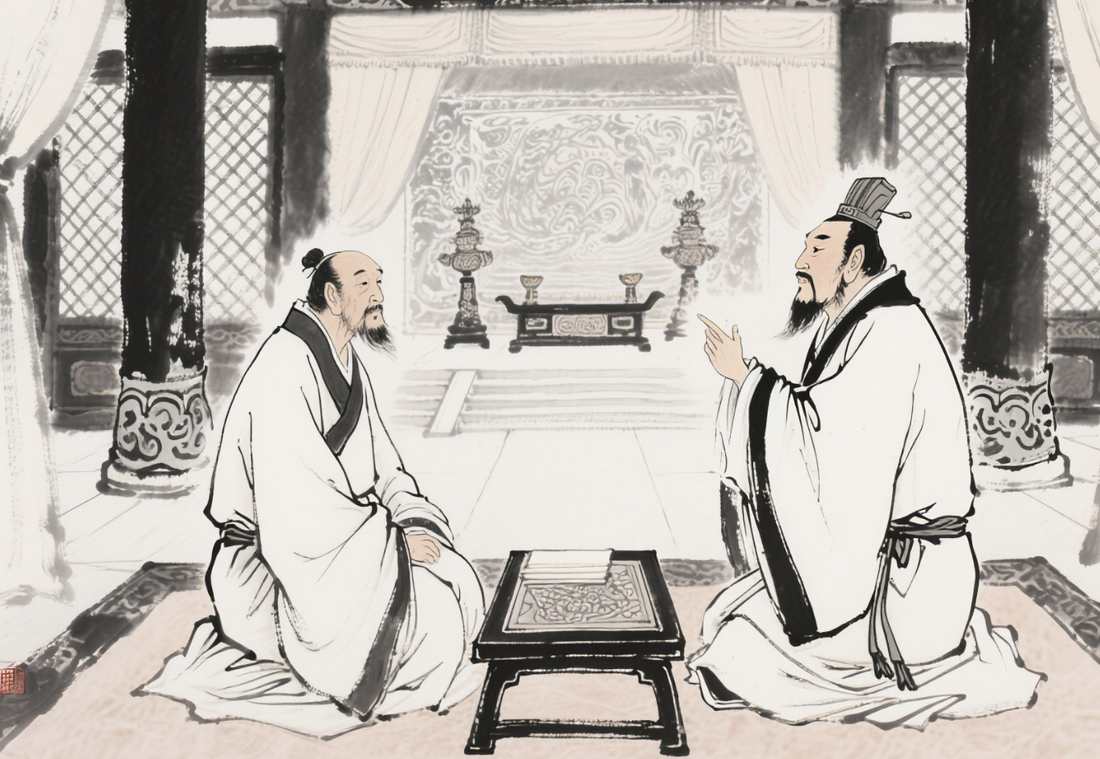Zhan He was a Taoist in the Warring States Period and was contemporary with Wei Mou. His main period of activity was between 325 BC and 250 BC. He once had a dialogue with the King of Chu and was treated with courtesy by the King of Chu. He adhered to the Taoist tenet of inaction: "Therefore, the sage listens without sound and looks without form. Zhan He, Tian Zifang, and Lao Dan are examples" ("Lüshi Chunqiu · Chongyan"). He advocated the theory of valuing life and belonged to the school of valuing life within the Taoist school. He asserted that "valuing life means despising benefits" ("Lüshi Chunqiu · Shenwei"). He believed that despising benefits was an inevitable result of valuing life. Furthermore, he thought that valuing life and maintaining good health were everything, and national affairs held no place in his mind. Therefore, when the King of Chu asked him how to govern the country, he showed no interest and replied, "I only know about taking care of oneself, not about governing the country" ("Lüshi Chunqiu · Zhi"). He even believed that "the foundation of governing the country lies in taking care of oneself" (ibid.).

He practiced Laozi's Taoist art of "knowing the world without leaving the house". Sitting in the room with his students, he debated about the color of a cow outside. Without any investigation, he made a conjecture that "it is a black cow, and there is white on its horn" ("Han Feizi・Jielao"). His view of "foreknowledge" was criticized by Han Fei (ibid.). His deeds and remarks can also be found in "Huainanzi・Lanming Xun".
✨ Recommended Taoist Talismans
Discover powerful talismans for your spiritual journey
















